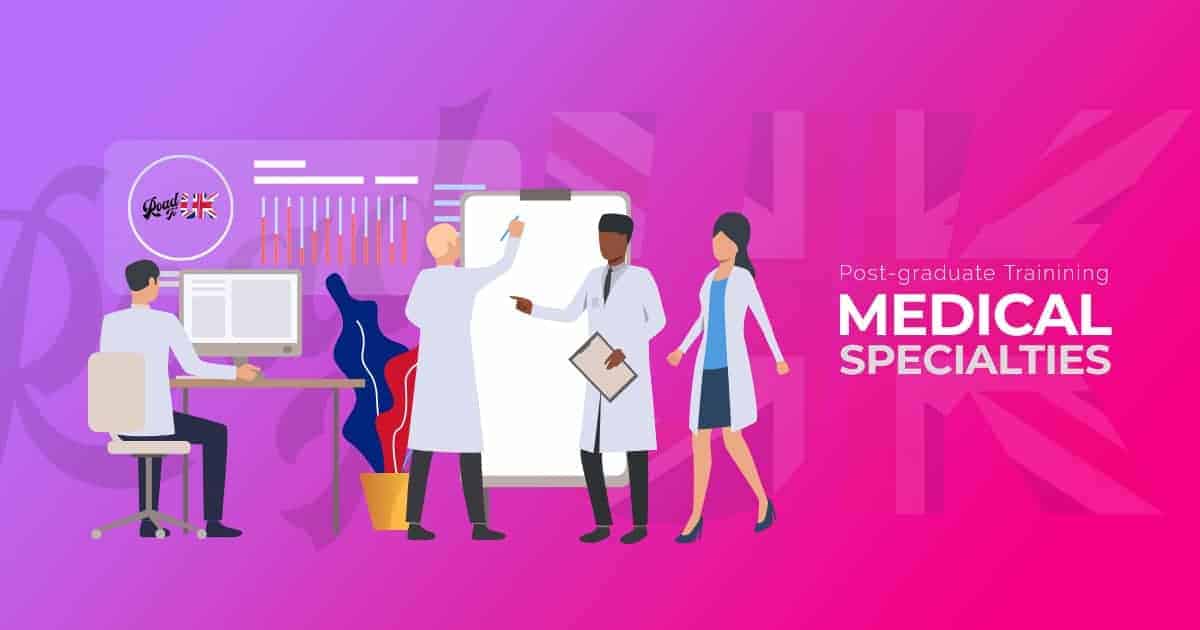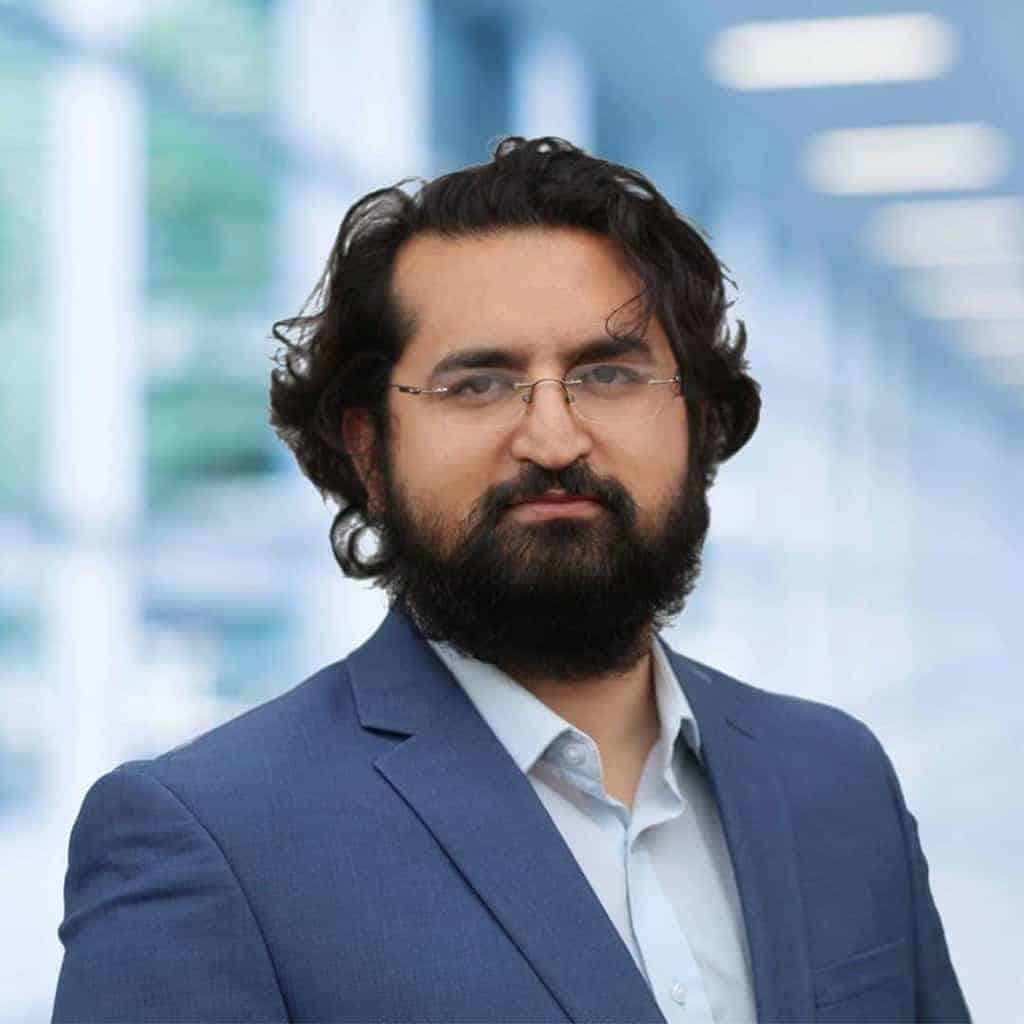Medicine Training in the UK for International Doctors (IMGs)

Post-graduate training in medicine related specialities are very coveted by doctors in the UK. It is important to note that ‘post-graduate training’ and a ‘post-graduate degree’ are not the same thing. A ‘degree’ is awarded following an exam; training is what you gain from your work-experience and other necessary courses laid out by your training curriculum. For example: MRCP is a post-graduate degree/qualification and acute medicine speciality training is a post-graduate training.
You can obtain certain post-graduate degrees without being in an approved training post. Again, you may have to obtain some degrees according to your training curriculum. So, both go hand in hand in order to obtain specialist registration under GMC.
How training in medical specialities is structured in the UK
This post is regarding training in medical specialities only. So, training in the UK is divided into three parts:
- Foundation training
- Core training
- Speciality training
Foundation training
If you are a non-UK/EEA medical graduate, then you have three options:
- Obtain the equivalent of foundation training outside UK
- Obtain the equivalent of foundation training inside UK
- Getting into the foundation training by UKFPO.
You can get the certificate of readiness to enter speciality training (CREST) form signed by your overseas consultant if you had worked under them for at least three months after completion of your formal internship/house job.
The same way, you can start working in the UK as a non-training doctor and after working under a consultant for at least three months, you can get those competences signed off.
More information regarding GMC approved Internship and UKFPO foundation training can be found here.
Core training (Internal Medicine Training)
Core training portion in medical specialities is called “Internal Medicine Training” (IMT). It is a 2 year or 3 year training program, depending on which speciality you want to pursue after that.
| Group 1 specialities | Group 2 specialities |
|---|---|
| Acute Internal Medicine | Allergy |
| Cardiology | Audiovestibular Medicine |
| Clinical Pharmacology & Therapeutics | Aviation & Space Medicine |
| Endocrinology & Diabetes Mellitus | Clinical Genetics |
| Gastroenterology | Clinical Neurophysiology |
| Genitourinary Medicine | Dermatology |
| Geriatric Medicine | Haematology |
| Infectious Diseases (except when dual with Medical Microbiology or Virology) | Infectious Diseases (when dual with Medical Microbiology or Virology) |
| Neurology | Immunology |
| Palliative Medicine | Medical Oncology |
| Renal Medicine | Medical Ophthalmology |
| Respiratory Medicine | Nuclear Medicine |
| Rheumatology | Paediatric Cardiology |
| Pharmaceutical Medicine | |
| Rehabilitation Medicine | |
| Sport and Exercise Medicine |
For group 1 specialities to pursue following IMT, it will be a 3 year of Internal Medicine Training
For group 2 specialities, internal medicine training is for 2 years.
Internal medicine training is the time when a resident doctor gradually becomes a medical registrar. During this time, a doctor will have to follow the curriculum and finish their MRCP exams in order to be eligible to apply for further speciality training in different branches of medicine in the UK.
Acute Care Common Stem (ACCS) – AM (Acute Medicine)
Read in detail about ACCS-AM in the official website.
Speciality Training
Already mentioned above the different branches of medicine which you can pursue after your internal medicine training. Currently the length of that training is indicative 4 years. During this time you can have special interest in other super-special branches of medicine and you can pursue that as well.
For medicine related specialty training application in the UK, check here for the eligibility.
After successfully completing all of that, you would be awarded a certificate of completion of training (CCT) with which you can apply to registered as a specialist under GMC and take up a Consultant job. If you bypass IMT, you can go for CESR-CP route of specialist registration.
Already hold some qualifications? You don't need to start from the beginning.
How to get into medicine training in the UK as an IMG
The steps of getting into your desired speciality in medicine.
Obtain full GMC registration
You can’t work in the UK as a doctor without having GMC registration first. First, plan for ways you can obtain it.
Get into UKFP or equivalent (CREST)
To get into internal medicine training (IMT) you have to have completed either foundation training (UKFP) or have equivalent work experience supported by a signed CREST form. All you need to know about CREST here.
Complete MRCP (UK)
You are expected to complete all parts of MRCP while you are in internal medicine training.
Apply for your desired speciality
After completion of IMT, you can apply for whichever speciality you want to pursue. Check above whether your speciality is in group 1 or group 2. Depending on that, you will have to either 2 or 3 years of IMT.
Frequently Asked Questions
Do I become a Internal Medicine Specialist after IMT?
No. There is no internal medicine specialist like that. IMT training makes you an acute medical registrar, who then can apply for specialization in different branches of medicine. You can apply for Acute medicine as your specialization (for 4 years further), which will make you an Acute Internal Medicine (AIM) consultant.
Some (almost all of them) specialization pathway comes with a competency module for general internal medicine (GIM) as well. So a fellow/trainee who is in specialization pathway to become a respiratory medicine consultant, they are also becoming a general medicine (GIM) consultant.
Please watch this video on cardiology career to understand it in a more detail – How to become a cardiologist in the UK.
Can I bypass IM training by passing MRCP?
No. An exam doesn’t prove the competencies that is required for you to have to become a medical registrar. Only if you can get “Alternative certificate of core competencies” signed by a consultant (as outlined in the form itself), then you can bypass IM training altogether.
Will I get a CCT if I join speciality training by showing alternative core competencies?
Yes. Previously, trainees were being awarded CESR or CESR-CP but recently changes have been made in the system which allows doctors to get CCT if they have completed the full higher speciality training in the UK.
So there you have it! A relatively concise breakdown of how to enter into medical specialty training. Hopefully any questions or concerns that you had have been addressed. Good luck!

